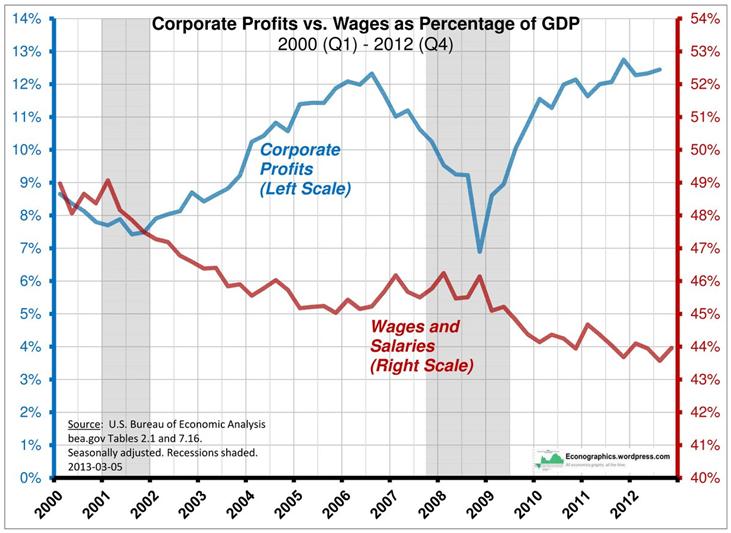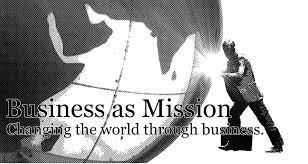(First Published on The Cable, April 27, 2019 – https://www.thecable.ng/an-alternative-path-for-the-governance-of-nations)
The world has seen a gradual rise in populist movements; our own President Muhammadu Buhari’s second term victory could be attributed to the unquestioning support of low-income-earning citizens. Not necessarily because they’re convinced he can help the status quo but for the mere fact that they can better identify with him. President Trump’s ascent to power was on the promise of reviving the economy for the middle class – “Making America Great Again”. The yellow vest movement in France, the nationalist parties in Germany and the Brexit brouhaha all have a major connection to the relative economic shift happening in our world – huge economically disenfranchised populations are feeling the pinch and are fighting back.
The summary is that capitalism as presently constituted is losing its appeal: In an April interview with Marketwatch.com, Richard Trumka, the president of the largest labour union in America – the American Federation of Labour and Congress of Industrial Organizations (AFL-CIO) – noted that capitalism has failed to boost wages for the lower and middle class and is in danger of getting replaced. He cited Trump’s emergence as proof of this shift.
His assertions hold water. For the past 40 years, according to data from the Pew Research Centre, adjusting for inflation, wages for non-supervisor roles in the USA have not risen by more than 10%. In Nigeria, it has actually regressed – if we use the minimum wage for example, in dollar terms, N30, 000 (84USD) in 2019 is a lot less than N18, 000 (118USD) in 2010.
Note, however, that within the same period, globally, the prices of assets like land, housing and automobile have seen major growth. This is so much so that, in most European cities, even surgeons – who represent the typical well-paid middle class can hardly afford a home close to the city centre; the scenario is same in Nigeria.
In addition to this gradual pauperization of the low and middle class is the increase in national debt profile. According to PENCOM (September 2018), the Nigerian federal government has borrowed more than 70% of the contributed pensions; and though Nigeria is yet to default on her debt obligations, with more than 60% of the federal government revenue going towards debt servicing, we are not too far from that destination.
With a debt to GDP ratio of 23.4%, Nigeria is pretty better than USA (82.3%), China (47.8%) and India (70.2%). Considering the size of the GDP of these nations, these are gigantic debts; and since domestic debts account for the bulk of these debts, the working middle class are hardest hit when governments print more money to pay this debt or fund the now ubiquitous welfare programmes causing inflation. In other words, it is the middle class that lends its pensions to governments that suffer the most when governments print money to repay them.
It is no surprise, then, that the middle class is shrinking. Few working-class millennials can afford what their working parents achieved at the same age. This is not just a Nigerian challenge; it is a global challenge and is contributing to a lot of global conflicts including the xenophobia in South Africa. Xenophobia and similar militant nationalism are quite appealing: it is easier to blame someone else, particularly foreigners, for intractable issues like these. Brexit is a classic case study.
BEGGAR THY NEIGHBOR: LOCALLY AND INTERNATIONALLY
Capitalism is driven by corporations, and corporations exist solely to maximize shareholders’ wealth. Though capitalism has done much better in supporting a free and prosperous society than socialism and communism, the challenge of unequal income distribution is becoming a significant concern. With it comes a growing tolerance for socialism: many people are beginning to wonder if Karl Marx was not right after all. We now expect governments to solve most of our economic problems and it appears we must make a choice between the freedom that comes from capitalism and the equality socialism/ communism offers. The challenge is that it is unlikely that we can have both.
Even though we can argue that capitalists do not seek to beggar their neighbours, yet it is not the stated goal of the capitalist structure to drive the development of her neighbours; rather, it is to harness the best of available resources to achieve optimal profitability. Hence, developing countries, which are less competitive generally, have a hard time getting good deals; even the USA is now aggressively renegotiating her trade deals. This survival-of-the-shrewdest scenario is the reason Nigeria will need a lot more than aid money to develop; we are far from competitive in a frantically competing world – in fact, the word “competitiveness” is just making a renaissance with our political elite.
CONSIDERATIONS
The goal of this article is to offer an alternative perspective particularly for developing countries in Africa which are not yet completely enmeshed in the capitalist culture and are also at a loss as to which forms of governance to adopt considering the challenges of the available alternatives. It is premised on the conclusion that the current state is not sustainable. The basis of the recommendations is underpinned by the following key factors:
- Socio-economic impacts can and should be measured – regardless of the agent, i.e., either the public or private sector.
- Sustainability of national development interventions is hinged on the level of balance within the system (quality of human and material development, equal opportunity in income distribution, etc.).
- The pricing of inputs and outputs provides indicators on the level of efficiency, level of balance in income distribution and long-term system sustainability.
- Culture and education are key factors that influence capacity for long-term productivity.
SUSTAINABILITY INDICES
Sustainability Indices (SIs) as envisioned here are guidelines/regulations/laws prescribed by government (in collaboration with the private sector) that stipulate expected, desired and required ranges of input and output conditions for broad sectors of the economy. For example, what is the required ratio of house pricing as a proportion of median income, corporate profit allocation between workers and shareholders, the price of basic education as a ratio of long-term individual productivity, the price of basic health care as a proportion of median income and the best pricing system for public bonds?
The key goal of the SIs is to ensure that the activities of both the private sector reflect, foster and achieve sustainability considerations. This is very important, as capitalism as presently construed does not consider sustainability as a target.
Take, for example, the cost of housing – one of man’s most important expenditure items. When the cost of housing exceeds a certain proportion of household income, it becomes non-sustainable; the same applies to cost of basic household feeding, health and education. Proactive collaboration between the state and private sector to achieve outcomes that meet the sustainable indices are critical for sustainable development.
The SIs therefore provide a goalpost for economic activities – regardless of whether they are capitalistic or social in nature. The goal of government, consequently, will be to engage critical stakeholders to meet those sustainable ranges and to be inactive when market forces alone can achieve the same.
For income distribution, for example, the SIs can determine what is equitable, either by using taxes or by regulating in-house company profit sharing systems.
Another major issue is public bonds issuance. Governments have fallen in the habit of issuing long-term bonds they don’t plan to repay in the foreseeable future. However, with an SI system that ensures that all bonds are repayable from their impacts within, say, a 25-year interval, it is expected that greater thought would be applied to government debt management systems. Note that the asset prices in some industries, e.g., railways and road construction can be inflated based on the fact that governments are the main buyers – in other words, when evaluated for their economic output, some of such assets are overpriced. SIs ensure that public borrowings for public infrastructure must reflect sustainability; outputs should be sufficient to cover the cost of inputs after adjusting for other costs (inflation and premiums).
The above, if implemented, will lead to structured independent government bonds and a departure from a typical socialist structure where government builds ultra-cheap infrastructure in the short term with heavy loan obligations in the long term. Under this arrangement, a road infrastructure bond will exist as a self-repayable bond. For example, government can structure itself to focus (this is an example) 30% of its revenue on unrepayable investments (security etc.), 25% on overhead, 10% on savings, 30% on repayable investments (its investment) and 5% on prospecting.
Note that taxation is a form of repayment. This proposal essentially recommends that the government be restructured as a social venture capitalist managing public resources with a focus on sustainability and not just growth.
KEY EFFECTS OF THIS APPROACH
- Immediate dwindling of the cost of governance as many government institutions will fail to meet the requisite sustainability conditions.
- Increased transparency in the governance process, as the goal posts are real and easy to comprehend.
- Massive investment in long-term impactful education as this portends one of the most sustainable interventions.
- Decrease in government debt resulting from more pragmatism in project design and implementation.
- Reduced income disparity due to relatively reduced asset appreciation and better income distribution practice.
- Emergence of balanced incentive structures.












